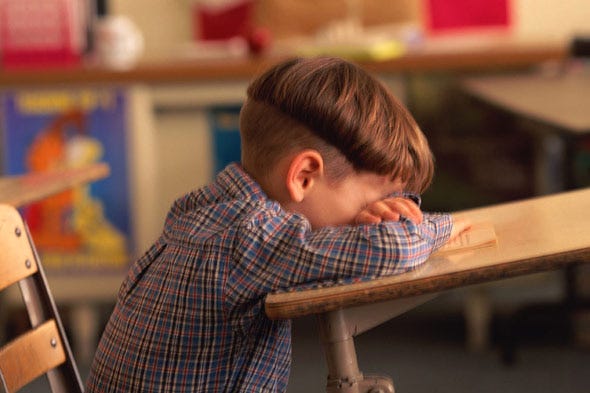Confidence is a crucial aspect of a child's growth and overall well-being. Children with low confidence often struggle with social interactions, finding it difficult to make friends and feeling inadequate and self-doubtful. As parents, it can be difficult to see our children struggle with low confidence, but it is essential to understand the root causes and work towards resolving them.
Low confidence in children can stem from several underlying factors, including lack of encouragement and support, comparison to peers, fear of failure, and poor social skills. In this article, we'll delve deeper into these factors and provide practical solutions to help parents address them.
Lack of Encouragement and Support
 One of the primary causes of low confidence in children is the absence of encouragement and support from parents or caregivers. Children who continuously receive criticism, belittling, or negative messages about their abilities may internalize these beliefs, leading to low self-esteem. In contrast, children who receive consistent encouragement, praise, and support from their parents have a higher likelihood of developing high self-esteem and confidence.
One of the primary causes of low confidence in children is the absence of encouragement and support from parents or caregivers. Children who continuously receive criticism, belittling, or negative messages about their abilities may internalize these beliefs, leading to low self-esteem. In contrast, children who receive consistent encouragement, praise, and support from their parents have a higher likelihood of developing high self-esteem and confidence.
It's essential for parents to be mindful of the messages they communicate to their children, both verbal and nonverbal. A child who constantly receives corrections or criticism may feel like they can never do anything right, resulting in low confidence. Conversely, a child who consistently receives praise and encouragement may feel more competent and confident in their abilities.
One practical way to provide encouragement and support is by praising children for their effort and progress, not just their outcome. Parents can also provide specific and genuine compliments, which can help boost a child's confidence. Additionally, involving children in activities they enjoy and excel at can also help build confidence.
Comparison to Peers
 Another common cause of low confidence in children is comparison with their peers. Children who are compared to others, either by their parents or through social media, may feel inadequate or like they don't measure up, leading to feelings of inadequacy and low self-esteem. This, in turn, manifests as low confidence.
Another common cause of low confidence in children is comparison with their peers. Children who are compared to others, either by their parents or through social media, may feel inadequate or like they don't measure up, leading to feelings of inadequacy and low self-esteem. This, in turn, manifests as low confidence.
To combat this, it's crucial for parents to focus on their child's individual strengths and abilities instead of comparing them to others. Encouraging children to engage in activities they enjoy and excel at can also help build confidence. Additionally, parents should help their children understand that everyone has different strengths and weaknesses, and it's okay to be different.
One way to help children understand this is by having conversations about growth mindset and emphasizing that everyone has different paths to success. Parents can also help children understand that comparison only leads to dissatisfaction and should be avoided.
Fear of Failure
 Another reason for low confidence in children is the fear of failure. Children who face consistent pressure to perform at high levels, either from their parents or standardised testing, may feel like they are always being evaluated. This can lead to feelings of anxiety and fear, which manifest as low confidence.
Another reason for low confidence in children is the fear of failure. Children who face consistent pressure to perform at high levels, either from their parents or standardised testing, may feel like they are always being evaluated. This can lead to feelings of anxiety and fear, which manifest as low confidence.
To resolve this issue, it's essential for parents to help their children understand that failure is a natural part of the learning process. Encouraging children to take risks, even if they may not succeed, and celebrating their efforts and progress instead of just the outcome, can help. Parents should also help their children understand that success is not just about getting the right answers, but about learning and growing.
One practical way to help children overcome the fear of failure is by emphasizing the importance of trying new things and learning from mistakes. Parents can also help children understand that it's okay to make mistakes and that they can learn from them. Additionally, parents can provide children with opportunities to take risks and experience failure in a safe and supportive environment, such as through play or age-appropriate activities.
Poor Social Skills
Poor social skills can also contribute to low confidence in children. Children who struggle with social interaction may have difficulty making friends, which can lead to feelings of isolation and low self-esteem. Additionally, children who have difficulty communicating their thoughts and feelings may also struggle with confidence.
To help children develop social skills and improve their confidence, parents can encourage socialization and provide opportunities for children to interact with their peers. Playdates and organized activities, such as sports teams or clubs, can provide a safe and supportive environment for children to develop their social skills.
Parents can also help children understand the importance of communication and provide opportunities for them to practice. This can include role-playing, storytelling, or other activities that encourage children to express themselves. Additionally, parents can help children understand how to handle rejection and disappointment, and how to bounce back from setbacks.
In conclusion, low confidence in children can stem from several underlying factors, including lack of encouragement and support, comparison to peers, fear of failure, and poor social skills. As parents, it's essential to understand these factors and work towards resolving them. This may involve providing encouragement and support, focusing on individual strengths, addressing the fear of failure, and helping children develop social skills. By addressing these underlying causes, parents can help their children develop confidence, which will serve them well throughout their lives.
If you want to learn more about how The Warrior Academy helps children with low confidence, take our Breakthrough Area Assessment to understand what might be causing it in their life. Click the button below to do it now.


